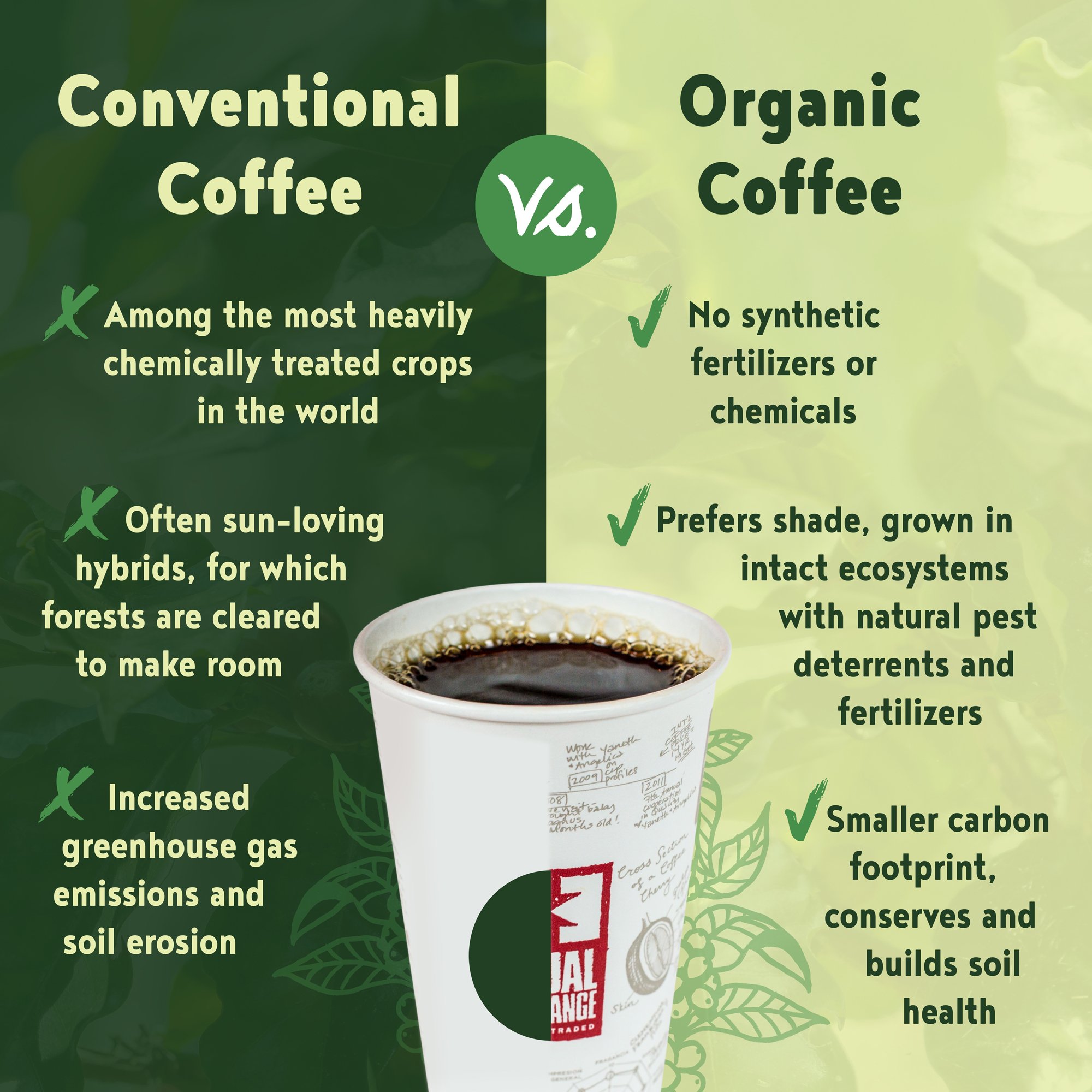Blog
Is Organic Coffee Beans Really Better?
Organic products have quickly become a go-to in grocery stores, including coffee. You’re sure to find organic options available at many coffee shops for your morning cup of joe, but is the higher price point worth it? Does organic coffee actually taste any differently from its mainstream counterpart? Organic foods often touted as being more beneficial, but is this also the case here?
What distinguishes organic coffee beans is their cultivation without synthetic chemicals at any stage in their life cycle, including fertilizers and any pesticides or chemical sprays used during cultivation. Organic farms utilize sustainable farming practices that protect biodiversity while simultaneously sequestering large amounts of carbon from conventional farms – making them more environmentally responsible choices than their conventional counterparts.
Organic coffee beans offer more than environmental advantages; they’re also healthier for us! Grown without harmful chemical residues in their soil, organic coffee beans have higher antioxidant concentration. Furthermore, as no chemicals were used during production of the bean itself it’s free from additives or preservatives and therefore more nutritious overall.
Coffee plants produce seed pods from which we get our beans to drink, with only the finest beans being certified organic and harvested by hand. Harvesting of the seeds takes time as only those at peak maturity can be harvested using machinery; harvesting by hand gives a more subtle and complex taste than machinery harvesting does. Only beans that meet certain standards for organic certification.
Organic coffee requires being grown on land that has not been treated with synthetic chemicals during the previous three years and must include a buffer zone around any traditionally-grown crops. Furthermore, after harvesting occurs everything must follow strict guidelines as far as storage, transport and roasting goes. Furthermore, any non-organic equipment or facilities must never come in contact with organic products and be cleaned only using approved detergents or cleaners.
Organic coffee must be produced by farmers who can afford the certification costs; given that many coffee farmers are small-holders producing modest crops for subsistence farming purposes, certification costs often outstrip what these producers can afford and thus only a portion of the world’s coffee beans are currently organically produced.
Equal Exchange works with co-ops in Latin America that are dedicated to reforesting and using it for coffee cultivation; their goal is to establish an organic coffee market with high-quality, fair trade products. We can all do our part in encouraging these efforts by purchasing organic coffee when available and encouraging our local coffee shops to do the same.




